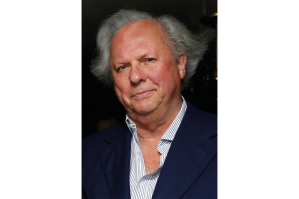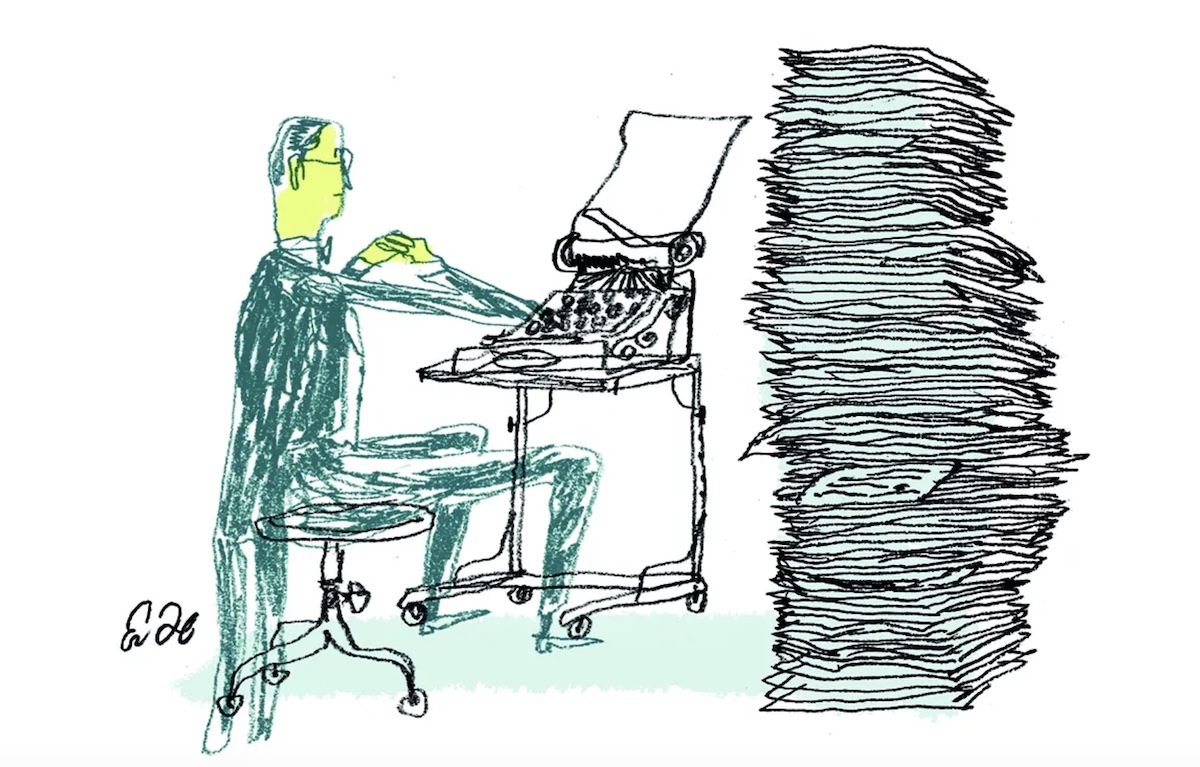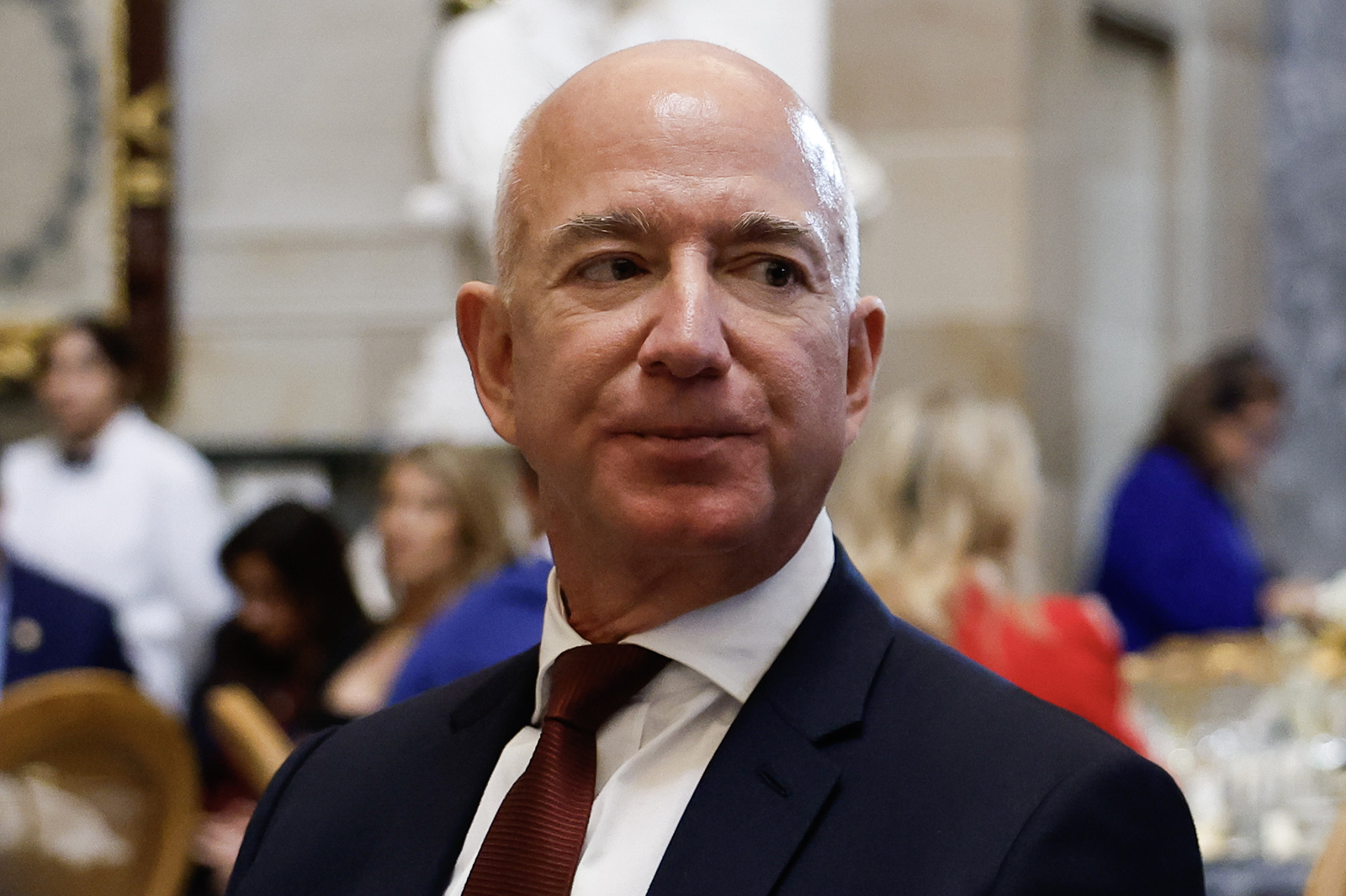The number of parents choosing to homeschool their children has risen sharply since the Covid-19 pandemic. There are plenty of reasons for this trend, but the overarching issue was that parents simply lost trust in the public education system, whether because of the adoption of illogical Covid policies pushed by teacher’s unions or the introduction of controversial, politicized content into curricula. It became clear over the past few years that school boards and teacher’s unions mostly don’t have the best interests of students in mind, are resentful of parental involvement and are willing to lie if it means avoiding accountability for their bad decisions. The effect of liberal control over public education? Math and reading scores in the US are at their lowest level in decades. But don’t worry: colleges will drop their admissions standards, continue systematic grade inflation and graduate a class of under-educated, anxiety-riddled young adults brainwashed into left-wing dogma. Sigh.
Homeschooling is an alternative that terrifies the public education system because it means they cannot control your children. Homeschoolers are not subject to lessons on critical race theory, they don’t have to pretend that it’s normal for a boy to change in the girls locker room, and religion and traditional values might even be presented to them in a positive light! It’s important to mention here that homeschooling has tons of benefits outside of a political or values-based framework, as well. Children who require special education for a variety of reasons — mental or physical disabilities, emotional disorders, etc. — are often left behind in the standardized public system. Parents might choose to homeschool children with special needs so that they can get the kind of individualized care and education that they need in order to thrive.
A rise in homeschooling might be good for children, but it’s not for the “system”, which benefits politically and financially the more kids that are enrolled. So, they will try to destroy it.
Cue the Washington Post, which has been rolling out a year-long series on homeschooling in America under the tag “Home-School Nation”. Its first few articles in the series were data driven, noting that the numbers show homeschooling is no longer a “fringe” practice, it is no longer dominated by Christian conservatives, is practiced by a more diverse set of families and might feature a “hybrid” system that includes several days a week of learning at a public school. Most homeschool parents, though, cited “moral instruction” as a reason they wanted to teach their kids themselves. Regardless of political affiliation, parents seemed to agree that the public school system wasn’t inculcating their kids with the right values.
The Washington Post’s coverage of homeschooling, though, quickly turned dark. In early December, the paper published an article claiming that abusive parents exploit homeschooling laws to avoid public intervention. “What home schooling hides: A boy tortured and starved by his stepmom,” the Post warned. The paper went on to cite cherry-picked study of six school districts across several years that claimed about half of students withdrawn from school for home education during that period lived in homes with prior founded or unfounded allegations of abuse. Why would unfounded cases be included here? Especially considering that homeschooling parents might face accusations of abuse merely because they are homeschooling. I appeared on a panel for the Hill’s Rising last week during which one of the hosts said that “many people” would say homeschooling — particularly for the purpose of getting around childhood vaccine mandates — is abuse. You can watch it here. There is a common misconception that homeschooling parents are all religious nut jobs who keep their kids from socializing with their peers. The Post, in its article linking homeschooling to child abuse (and a subsequent article about a homeschool researcher we will talk about in a bit), falls into this narrative trap even though they previously collected data disproving that notion. The study is also problematic because the authors did not provide their raw data, and other studies lump homeschool kids and truant kids into one category.
A wider group of studies suggest there is not an increased risk of abuse among homeschooled kids. The only study using empirical data found that child abuse rates have fallen as homeschooling becomes more popular, and another review of states that relaxed their homeschooling laws found “no clear evidence of an increase in reported incidents of maltreatment in states that relaxed legal controls or bans on homeschooling.” Even groups that claim to find a higher rate of abuse among homeschooled children admit that their results are not statistically significant. Perhaps it’s true that if a homeschooled kid is abused, it‘s less likely to be reported. But we don’t see anti-homeschoolers advocating for random home checks or registration for children below school age or children who are out of school for summer vacation. We also hear little from the mainstream press about the fact that children are most likely to be sexually abused in the public school system.
Moving on to the Post’s latest article in its homeschooling series, which goes after the research of Brian Ray, a homeschool advocate and president of the National Home Education Research Institute. In addition to questioning his research tactics, the Post also accuses Ray of abuse because his daughter says she was spanked with a wooden spoon as a child. There are reasonable limitations to Ray’s studies on homeschool outcomes because homeschool parents have to opt-in to having their kids take the same standardized tests offered to public school students. The studies are naturally self-selecting. But Ray’s critics are hardly acting in good faith, either. The Post, for example, quotes Samantha Field, government relations director for the nonprofit Coalition for Responsible Home Education. The Post says the CRHE is founded by former homeschool kids who want more oversight over home education. They also run Homeschooling’s Invisible Children, which they claim is a database of documented cases of child abuse and neglect among homeschoolers. They include Elizabeth Smart in their database because her kidnappers, who stole her from her actual home and beat and raped her daily, instructed her to tell inquiring adults that she was homeschooled. It doesn’t take a genius to see why Smart doesn’t belong in their data set.
My friend Bethany Mandel, who homeschools her six children, offered her thoughts on the Washington Post’s homeschooling series:
“The problem with the Post’s coverage is it treats homeschooling as a monolithic institution. That’s the traditional public school model; where everyone has the same experience. Everyone reads the same books, uses the same curriculum, no matter their needs or learning styles or interests. This idea that we don’t have to exist in a box is threatening to people and institutions that want us all to remain on the conveyor belt system of public education. Homeschoolers have freed themselves from that; and that’s a threat to many people who prefer kids be educated by the state in only a certain way.”
I will continue to follow this series and keep you all updated on what the media will do to delegitimize school choice. It’s probably just a matter of time before Randi Weingarten gets a glowing interview to rail against homeschooling.






















Leave a Reply